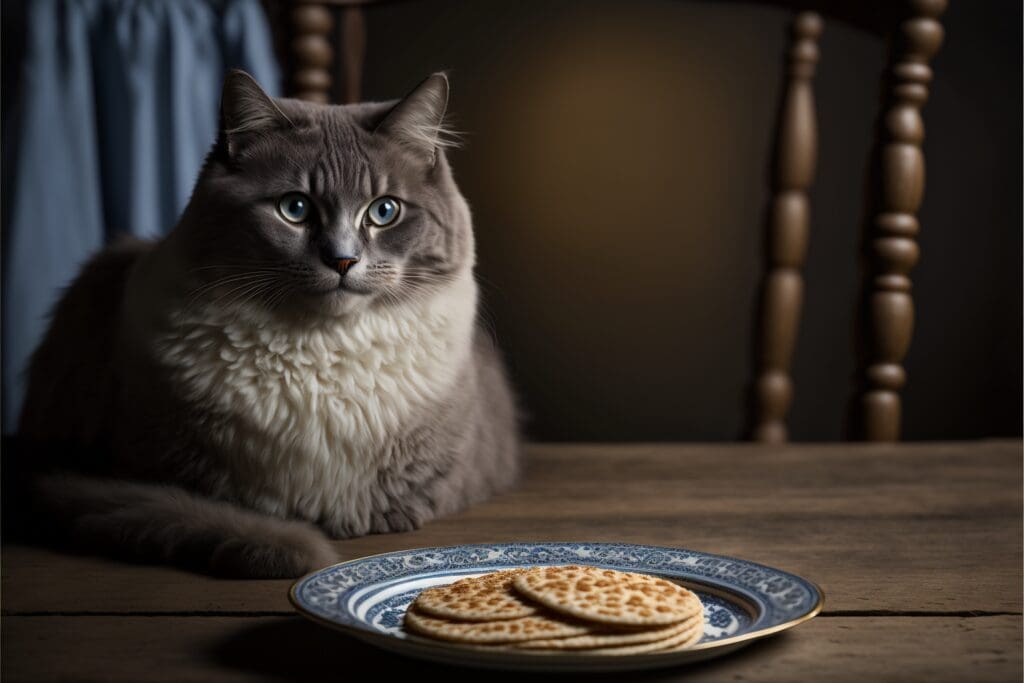Last Updated on January 8, 2023 by admin
Cats should not eat saltine crackers as they are not healthy for them. Saltine crackers contain high levels of salt, fat, carbohydrates, and calories, which can be harmful to cats. Salt can trigger hypertension and cardiac issues in cats and pets, and eating too much of these crackers can cause dehydration and obesity. Veterinarians discourage cat owners from feeding their cats salty snacks and instead recommend treats that are designed specifically for cats.
Is Saltine Cracker Safe for Cats?
Unfortunately, the answer to the question of whether cats can eat saltine crackers is a resounding no. Saltine crackers are not safe for cats to consume. These snacks are high in salt and fat, which in excess can cause dehydration and obesity in cats. Furthermore, saltines contain preservatives to extend their shelf-life, which can also be harmful to cats. Therefore, it is best to avoid giving your kitty saltine crackers and opt for healthier treats instead.
Ingredients in Saltine Crackers
Saltine crackers are commonly made with white flour, salt, and oil. As a result, they are high in carbohydrates and fat, as well as salt. Salt, in particular, can be toxic to cats if they consume too much of it. Additionally, saltine crackers typically have preservatives added to them to extend their shelf life. All of these ingredients make saltines an unhealthy snack for cats.
Adverse Reactions to Eating Saltine Crackers
It is important to note that cats can experience adverse reactions to eating saltine crackers. While it may not be toxic or poisonous, saltine crackers are high in sodium, fats, carbohydrates, and calories. These ingredients can be a problem for cats, as they can cause dehydration, obesity, and diarrhea. Diarrhea is one of the most common symptoms seen when cats have consumed saltine crackers, and it can occur within minutes to hours after eating them. That’s why it’s not advisable to feed saltine crackers to your cat.
Health Risks of Feeding Cats Saltine Crackers
Saltine crackers are high in sodium, fat, carbohydrates and calories, and cats are not able to process these substances the same way humans can. Eating saltines can cause a number of health risks in cats, including dehydration and obesity. Saltine crackers also contain preservatives that can be toxic to cats if consumed in large quantities. In addition, cats are at risk of developing diarrhea from eating too many saltines. Therefore, it is important to avoid feeding cats saltine crackers and other human food snacks, as they can cause serious health issues for your feline friend.
Common Human Foods to Avoid Feeding Cats
In addition to saltine crackers, there are other common human foods that cats should avoid. Many cats are attracted to the smell of foods that are not suitable for them, such as onions, garlic, grapes and raisins, and chocolate. These foods can cause digestive upset and in some cases, could be toxic. It’s also important to keep cats away from caffeinated drinks such as coffee, tea and soda, which can cause nervous system issues. Foods high in fat and sugar, like candy, ice cream, cake and chips should also be avoided as well. Finally, cats should not eat anything with bones in it such as chicken and fish bones, as they could choke on them or damage their digestive system.
Alternatives to Saltine Crackers for Cats
Thankfully, there are some healthier alternatives for cats that will still provide them with much needed nutrition and energy. Cat owners should look for cat-specific treats that are made of high quality, natural ingredients. This can include treats made from real meat, fruits, and vegetables. Additionally, cats need certain vitamins and minerals that are found in specially formulated cat food. This food should be formulated to meet the specific needs of cats and provide them with the nutrition they need.
Nutrients Cats Need and Saltine Crackers Lack
Although saltine crackers are not toxic to cats, they lack the nutrients that cats need to stay healthy. Cats require different levels of proteins, fats, carbohydrates, vitamins, and minerals in their diet. Saltine crackers have a high content of carbohydrates, sodium, and fat, but they are low in protein and other essential nutrients. All of these elements are important for cats to maintain good health and well-being. Therefore, cats should not be fed saltine crackers as a regular snack or as a meal replacement.
